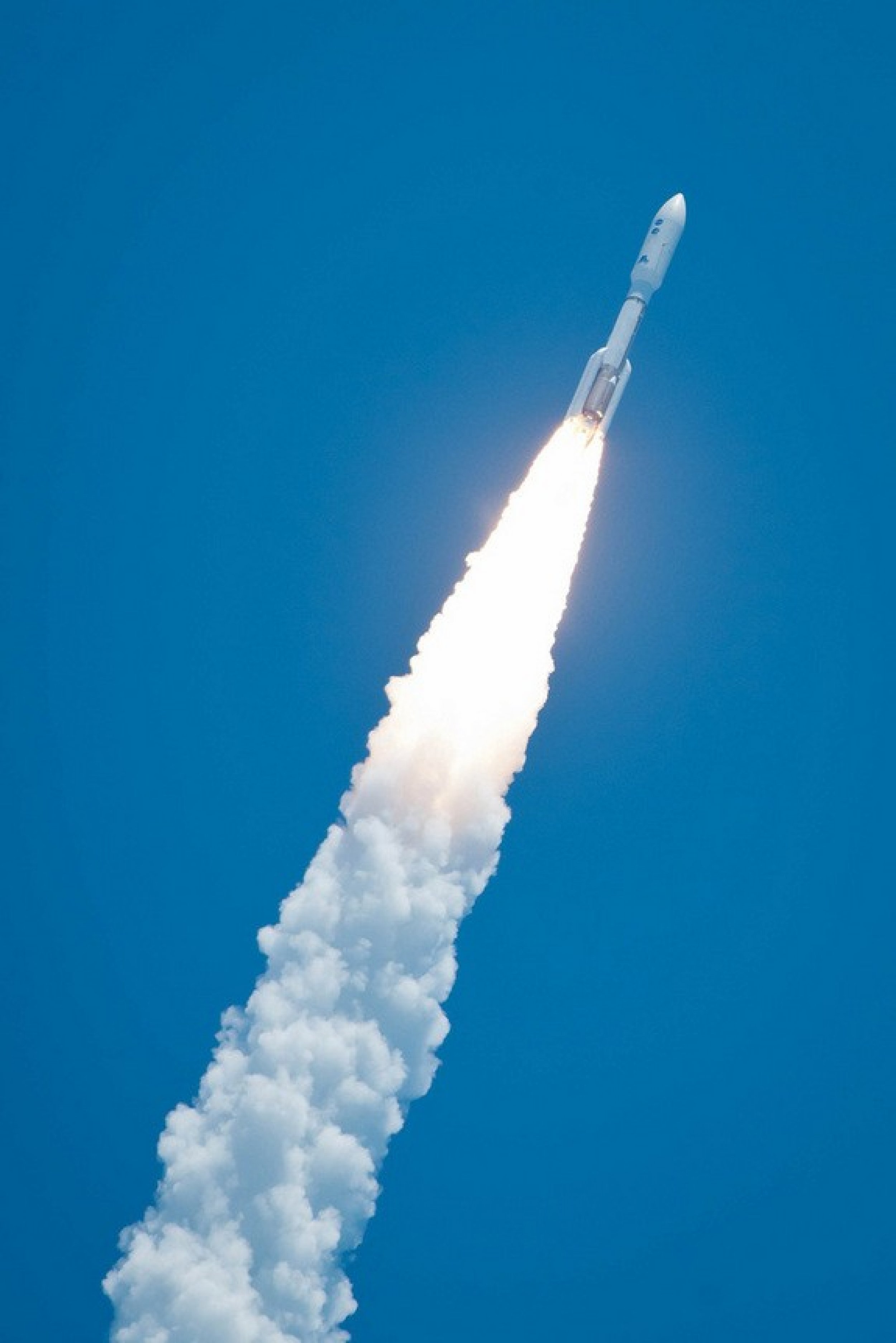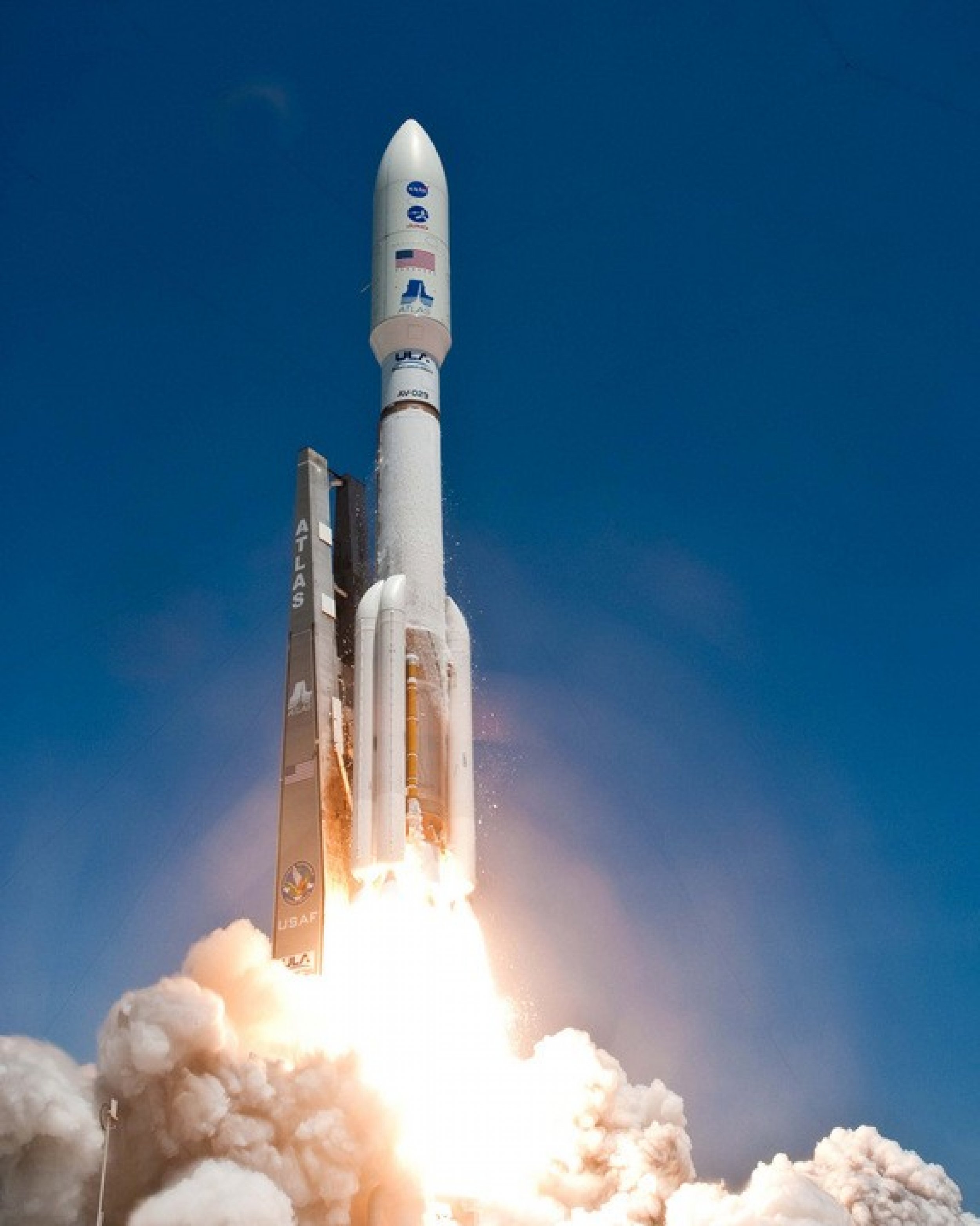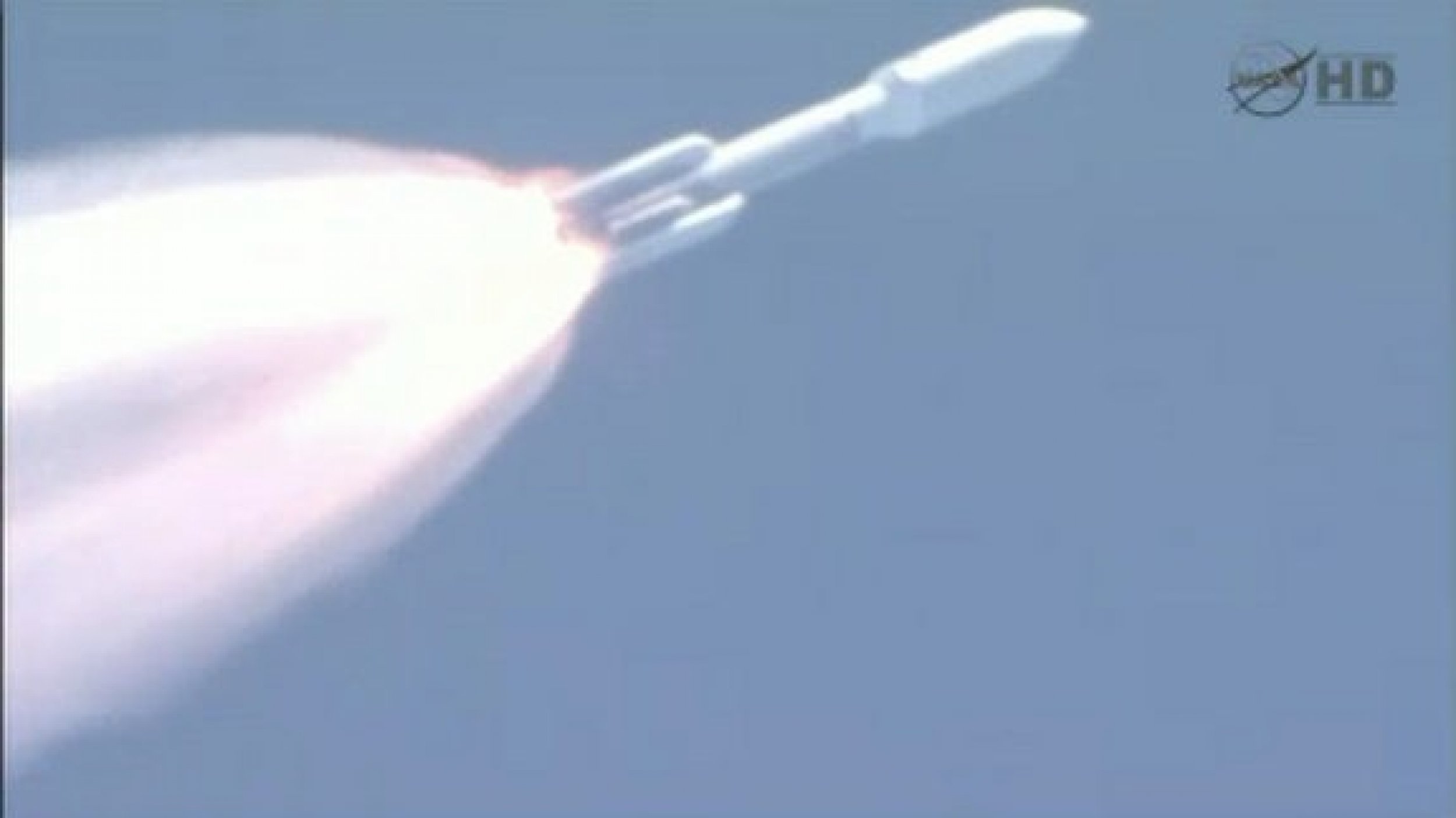NASA Spacecraft Juno Goes to Jupiter for Study
NASA will return to Jupiter once more to look for clues that could tell about the early days of the solar system.
The space agency launced a solar-powered Spacecraft Juno on Friday from Cape Canaveral Air Force Station in Florida, beginning a 5-year journey to Jupiter to conduct the year-long study.
Once there, Juno orbit 33 times around the Jupiter's poles and collect data that scientists have keen interest in, as the gas giant has an amazing composition, which is said to resemble a star, like the sun.
"Jupiter is the Rosetta Stone of our solar system," said Scott Bolton, Juno's principal investigator from the Southwest Research Institute in San Antonio, in a statement. "It is by far the oldest planet, contains more material than all the other planets, asteroids and comets combined, and carries deep inside it the story of not only the solar system but of us. Juno is going there as our emissary -- to interpret what Jupiter has to say."



© Copyright IBTimes 2025. All rights reserved.






















